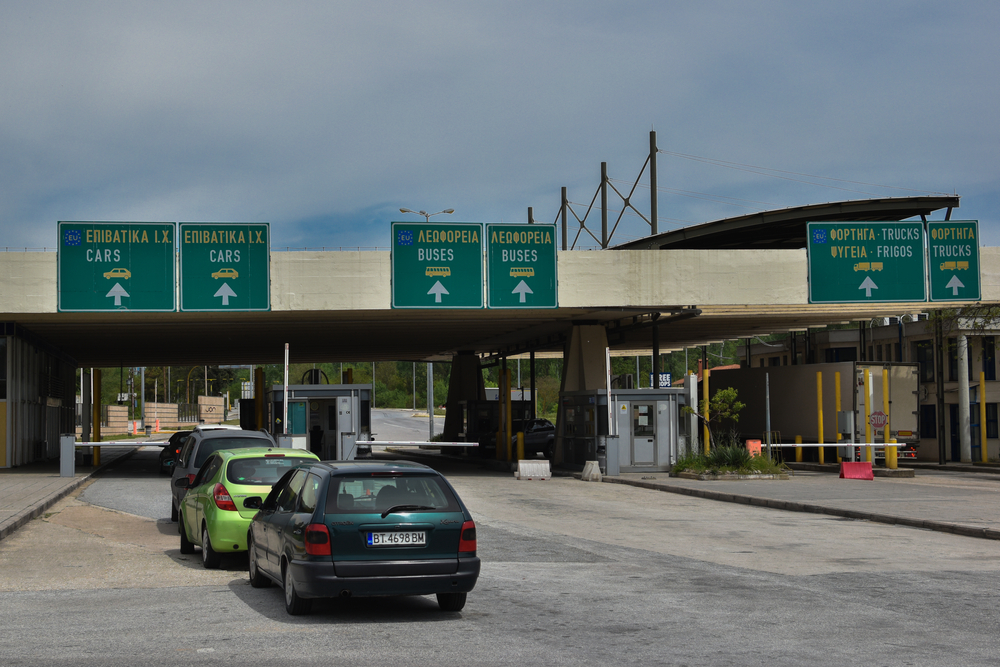
On the border between Greece and Bulgaria - © Dusan Ninkovic/Shutterstock
A seminar discussed regional relations in Europe during the pandemic, with Greece-Bulgaria relations among the case studies. But local-scale data would be needed to fully understand the situation, said Nicolas Rossignol of the ESPON programme, and there are few available
Has the Covid-19 pandemic strengthened or weakened ties between European regions? The issue was the subject of a seminar held during the nineteenth edition of the European Week of Regions and Cities, which took place this year between 11 and 14 October.
In questioning the present and future impact of the COVID-19 pandemic on relations between European regions, various case studies were reported, including that of foreign direct investment (FDI) from Greece to Bulgaria.
The study, led by Dimitris Kallioras, Panos Manetos, Lefteris Topaloglou, Maria Tsiapa, Maria Adamakou, and George Petrakos (University of Thessaly, Greece), seeks to understand to what extent the ongoing pandemic is discouraging Greek investors and companies from investing and relocating to Bulgaria, thus reversing a long-term trend: in the period between 2000 and 2020, in fact, 15,000 Greek companies relocated to Bulgaria, for a total of more than 3 billion Euros of FDI.
The phenomenon is certainly due to Bulgaria's entry into the EU in 2007, which removed more than a few logistical and bureaucratic obstacles to relocation, but also and above all to the contemporary financial crisis that hit Athens with particular severity. In this context, many companies have preferred to move to neighbouring Bulgaria, a state which, unlike Greece, could boast a sustainable debt-to-GDP ratio, low levels of unemployment, and above all lower taxes and a stable tax regime. In this regard, it is worth noting that a significant number of Greek companies in Bulgaria do not have any employees, proving that several entrepreneurs have probably used relocation only as an expedient to avoid the Greek tax regime.
The available regional data confirm the aforementioned trends: between 2010 and 2018, the Sofia region was the recipient of 85% of Greek foreign direct investments. The latter started mainly from the Athens region – 82%. Finally, about 12% of Greek foreign direct investments towards Bulgaria arrives in regions that border directly with Greece.
The restrictions due to the ongoing pandemic and the consequent economic uncertainty caused a sudden setback to this trend, of uncertain duration and repercussions. In order to provide an additional reading on the possible future implications of this huge flow of investments, scholars have decided to interview a significant sample of companies operating in Bulgaria.
According to the interviewees, the main attraction for Greek investments in Bulgaria is a more favourable and efficient institutional environment, both in terms of taxation and in terms of political and economic stability. Proximity to Greece and the lower cost of raw materials also play a fundamental role in this choice. The emergence of the pandemic crisis seems to have had a more negative impact on older investments, particularly those over 5 years, and on small and medium-sized enterprises operating in the most peripheral areas. While the companies interviewed praise Sofia's timely measures to tackle COVID-19 and its impact on the economy, most are pessimistic about a resumption of Greek investment in Bulgaria in the short term. This suggests prudence in withdrawing public aid to the economy, at least until the flow of orders and customers is back to levels comparable to those of the pre-pandemic period.
The interviews collected highlight the role played by the uncertainties linked to the pandemic crisis in reducing Greek investments in Bulgaria, while their return to pre-2020 levels – if it ever occurs – appears as a rather remote hypothesis, difficult to reach in the short period. In addition, as pointed out at the beginning by Nicolas Rossignol – Head of Unit for Territorial Evidence and Awareness-raising Activities of the European ESPON Programme – it is clear that it is becoming increasingly necessary to develop and analyse a new set of statistics to complement traditional agglomerated data at the national level, since the latter tend to neglect the specificity of single contiguous geographic areas and their particular interchange of goods, people, and resources.
The European programme of applied research ESPON – co-financed by the European Regional Development Fund – aims to remedy this deficiency, providing local political decision-makers with an innovative and better calibrated understanding of reality. The intent is to promote a new understanding of European dynamics on a regional basis, in order to provide different lenses through which to interpret European complexity with greater accuracy.
ESPON
ESPON (European Spatial Planning Observation Network) is an EU programme aimed at creating a European applied research network, with the aim of supporting cohesion and territorial development policies in Europe. Through its activity, ESPON processes and provides analyses, data, and statistics on territorial trends, which are indispensable both for a thorough understanding of European complexity and to be able to intervene with awareness in the area of territorial cooperation. From the economy to society, from migration to the environment, the programme aims to provide local policymakers with new interpretative tools, capable of promoting harmonious territorial development of the various European regions.
This content is published in the context of the "Work4Future" project co-financed by the European Union (EU). The EU is in no way responsible for the information or views expressed within the framework of the project. The responsibility for the contents lies solely with OBC Transeuropa. Go to the "Work4Future"







